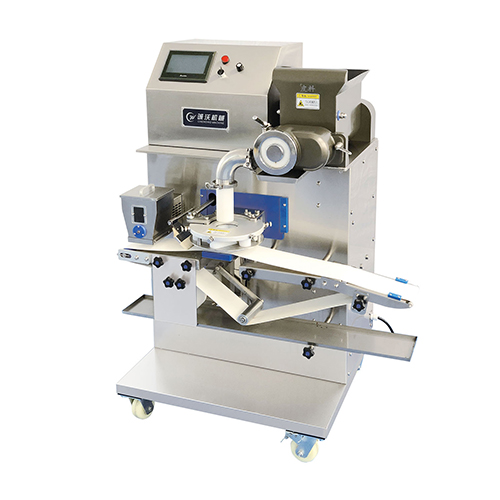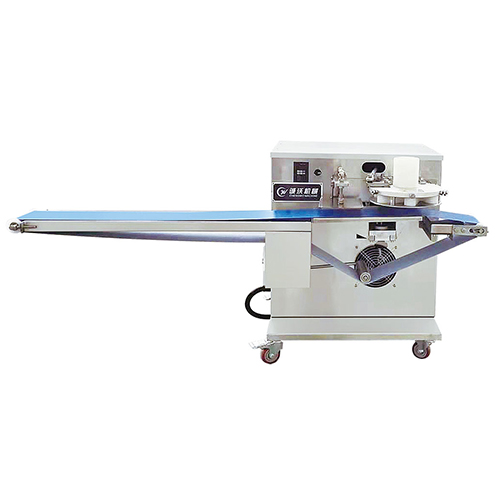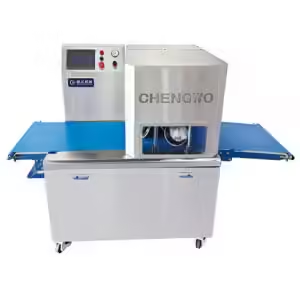



The food industry is evolving rapidly, and food processing machine are at the heart of this transformation. These advanced systems streamline production, enhance efficiency, and ensure high-quality output for businesses of all sizes. From small-scale bakeries to large industrial food manufacturers, food processing machines provide smart solutions that meet modern demands for speed, precision, and sustainability. This blog explores the role of food processing machines in revolutionizing food production, their benefits, and how they can elevate your operations.
In today’s fast-paced world, manual food preparation is no longer viable for meeting consumer demand. Food processing machine automate critical tasks such as mixing, cutting, baking, and packaging, significantly reducing labor costs and time. These machines ensure consistency in product quality, which is crucial for maintaining customer satisfaction and brand reputation. By integrating food processing machines into your operations, you can scale production while adhering to strict hygiene and safety standards.
Automation is a game-changer in the food industry. Food processing machines equipped with smart technology, such as programmable logic controllers (PLCs) and Internet of Things (IoT) connectivity, allow for real-time monitoring and precise control. This minimizes human error, optimizes resource use, and ensures compliance with food safety regulations. For instance, automated food processing machines can adjust temperatures during baking or regulate ingredient proportions, delivering consistent results every time.
Efficiency is a top priority for food manufacturers. Food processing machines are designed to handle high volumes with minimal waste, making them ideal for large-scale operations. They streamline repetitive tasks, allowing businesses to focus on innovation and product development. Additionally, modern food processing machine are energy-efficient, reducing operational costs and supporting eco-friendly practices.
The versatility of food processing machine makes them suitable for various applications, from baking to meat processing and beverage production. Below, we explore some common types of food processing machine and their specific uses.
Mixing and blending are foundational processes in food production. Food processing machines like industrial mixers and blenders ensure uniform ingredient distribution, which is critical for products like dough, sauces, and beverages. These machines come with customizable settings to handle different viscosities and batch sizes.
Precision cutting is essential for products like vegetables, meats, and cheeses. Food processing machine designed for cutting and slicing offer adjustable blade settings to achieve desired thicknesses and shapes, ensuring uniformity and reducing waste.
For bakeries and food manufacturers, baking and cooking machines are indispensable. These food processing machine include ovens, steamers, and fryers that provide consistent heat distribution for high-quality output. Smart baking systems can even adjust cooking parameters based on real-time data.
Packaging is a critical step in food production. Food processing machine for packaging and sealing ensure products are securely packed, extending shelf life and maintaining freshness. Automated systems can handle various packaging materials, from vacuum-sealed bags to eco-friendly containers.
When selecting food processing machine, it’s essential to consider features that align with your production goals. Here are some key aspects to evaluate:
High-quality food processing machine are typically made from stainless steel, which is resistant to corrosion and easy to clean. Durable materials ensure long-term reliability and compliance with food safety standards.
Modern food processing machine often incorporate smart technology, such as touch-screen interfaces and remote monitoring capabilities. These features allow operators to track performance, troubleshoot issues, and optimize production processes in real-time.
Energy-efficient food processing machines reduce operational costs and environmental impact. Look for machines with energy-saving modes or certifications that indicate sustainable design.
To help you choose the right food processing machine, the following table outlines key features and their benefits for different types of equipment. This table focuses on functionality rather than brand-specific comparisons.
| Machine Type | Key Features | Benefits | Applications |
|---|---|---|---|
| Mixing Machines | Variable speed settings, stainless steel bowls, automated timers | Uniform mixing, reduced labor, easy cleaning | Bakery, sauce production, beverage blending |
| Cutting Machines | Adjustable blades, high-speed motors, safety sensors | Precision cuts, minimal waste, safe operation | Vegetable processing, meat slicing, cheese production |
| Baking Equipment | Programmable temperature controls, even heat distribution, IoT connectivity | Consistent baking results, energy efficiency, real-time monitoring | Bread, pastries, ready-to-eat meals |
| Packaging Machines | Vacuum sealing, multi-material compatibility, high-speed operation | Extended shelf life, reduced spoilage, fast output | Snack foods, frozen products, beverages |
Investing in food processing machine offers numerous advantages for businesses looking to stay competitive. These benefits extend beyond efficiency to include cost savings, scalability, and improved product quality.
While the initial investment in food processing machines may seem significant, the long-term savings are substantial. Automation reduces labor costs, minimizes waste, and lowers energy consumption, leading to a strong return on investment.
Food processing machines are designed to scale with your business. Modular systems allow you to expand production capacity without overhauling your entire setup, making it easier to meet growing demand.
Consistency is critical in the food industry. Food processing machine ensure that every batch meets the same high standards, reducing variability and enhancing customer trust.
While food processing machine offer significant benefits, businesses may face challenges during adoption. Understanding these challenges can help you make informed decisions.
The upfront cost of food processing machine can be a barrier for small businesses. However, financing options and modular systems can make adoption more accessible.
Operating advanced food processing machines requires trained personnel. Investing in staff training ensures optimal use and minimizes downtime due to operator errors.
Selecting the right food processing machine depends on your production needs, budget, and long-term goals. Start by assessing your production volume and the types of products you manufacture. Consider machines with modular designs that allow for future upgrades. Additionally, prioritize suppliers with strong after-sales support to ensure maintenance and troubleshooting are seamless.
Proper maintenance is essential to maximize the lifespan and performance of food processing machine. Regular cleaning prevents contamination, while routine inspections can identify potential issues before they escalate. Follow manufacturer guidelines for lubrication and part replacements to keep your machines running smoothly.
The future of food processing machines is bright, with innovations like artificial intelligence (AI) and machine learning transforming the industry. AI-powered food processing machines can predict maintenance needs, optimize production schedules, and reduce waste. Additionally, sustainable designs are gaining traction, with manufacturers focusing on eco-friendly materials and energy-efficient systems.
Food processing machines are transforming the food industry by offering smart, efficient, and scalable solutions for businesses worldwide. From improving product quality to reducing operational costs, these machines are indispensable for staying competitive in a fast-evolving market. At Chengwo Food Machinery, we take pride in our professional engineering and R&D center, leading the way in introducing modular production concepts to the baking machinery sector.
As a pioneer in smart baking production lines and food processing equipment, we are committed to delivering innovative and high-end manufacturing solutions. Ready to take your food production to the next level? Contact us today to explore our range of food processing machines and find the perfect fit for your business.
What are food processing machine?
Food processing machines are automated systems designed to handle tasks like mixing, cutting, cooking, and packaging in food production. They improve efficiency, consistency, and safety.
How do food processing machines improve efficiency?
These machines automate repetitive tasks, reduce manual labor, and optimize resource use, allowing businesses to produce more in less time.
Are food processing machines suitable for small businesses?
Yes, many food processing machines are scalable and available in modular designs, making them suitable for businesses of all sizes.
What maintenance is required for food processing machine?
Regular cleaning, inspections, and adherence to manufacturer maintenance schedules are crucial to ensure optimal performance and longevity.

